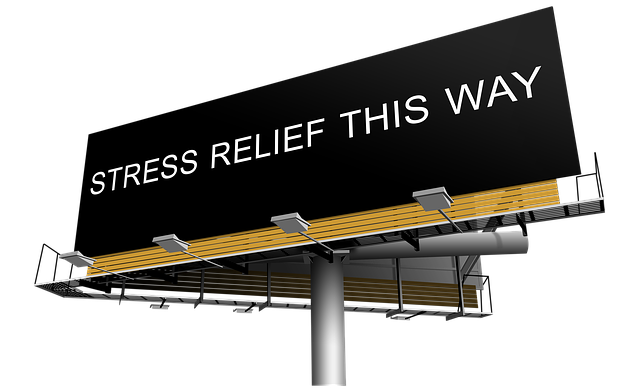
Image Source: Unsplash
Please note that this article is for informational purposes only and should not replace professional medical advice. If you are experiencing severe or chronic stress, it is recommended to consult with a healthcare professional.
Introduction
In today’s fast-paced world, stress has become an inevitable part of our daily lives. Whether it’s due to work pressures, personal responsibilities, or external factors, managing stress is crucial for our overall well-being. In this comprehensive guide, we will explore effective strategies to successfully manage everyday stress and promote a healthier and more balanced lifestyle.
Understanding Stress and its Impact
Stress is the body’s natural response to any demand or threat. In emergency situations, the “fight or flight” response is activated, which can be beneficial. However, when stress becomes chronic and unmanaged, it can have detrimental effects on our physical and mental health. Chronic stress has been linked to various health conditions, including high blood pressure, heart disease, diabetes, and mental health disorders.
Identifying Sources of Stress
To effectively manage stress, it’s important to identify the sources or triggers that contribute to your stress levels. These can vary from person to person and may include work-related pressures, relationship issues, financial concerns, health problems, or major life changes. By pinpointing the specific causes of stress in your life, you can develop targeted strategies to address them.
The Physical and Emotional Signs of Stress
Stress can manifest in various ways, both physically and emotionally. It’s essential to recognize these signs and symptoms to better understand your stress levels and take appropriate action. Physical symptoms of stress may include headaches, muscle tension, fatigue, gastrointestinal issues, and changes in appetite or sleep patterns. On an emotional level, stress can lead to irritability, anxiety, depression, mood swings, and difficulty concentrating.
The Importance of Stress Management
Managing stress is crucial for maintaining overall well-being and preventing the negative consequences associated with chronic stress. By implementing effective stress management techniques, you can reduce the impact of stress on your mind and body, improve your resilience, and enhance your ability to cope with life’s challenges.
Effective Strategies for Managing Everyday Stress
1. Prioritize Self-Care
Taking care of your physical and mental health is essential for stress management. Make self-care a priority by incorporating healthy habits into your daily routine. This can include regular exercise, eating a balanced diet, getting enough sleep, and engaging in activities that bring you joy and relaxation.
2. Practice Mindfulness and Relaxation Techniques
Mindfulness and relaxation techniques can help alleviate stress and promote a sense of calm and well-being. Incorporate practices such as deep breathing exercises, meditation, yoga, or progressive muscle relaxation into your daily routine. These techniques can help reduce stress hormones, lower blood pressure, and improve overall mental clarity.
3. Establish Healthy Boundaries
Setting boundaries is crucial for managing stress and maintaining a healthy work-life balance. Learn to say no to excessive demands or commitments that can overwhelm you. Prioritize your needs and allocate time for activities that bring you joy and relaxation.
4. Foster Supportive Relationships
Nurturing positive and supportive relationships can significantly impact your stress levels. Surround yourself with friends, family, or support groups that provide emotional support and understanding. Sharing your feelings and concerns with trusted individuals can help alleviate stress and provide a different perspective on challenging situations.
5. Time Management and Organization
Effective time management and organization can help reduce stress by providing structure and clarity to your daily tasks. Make use of tools such as calendars, planners, or digital apps to prioritize and schedule your activities. Break tasks into manageable steps and tackle them one at a time, focusing on progress rather than perfection.
6. Engage in Physical Activity
Regular physical activity is not only beneficial for your physical health but also for stress management. Engaging in exercise releases endorphins, which are natural mood-boosting chemicals in the brain. Find activities that you enjoy, whether it’s walking, running, dancing, or practicing a sport, and incorporate them into your routine.
7. Practice Healthy Coping Mechanisms
Instead of resorting to unhealthy coping mechanisms such as overeating, smoking, or excessive alcohol consumption, develop healthier ways to cope with stress. Consider activities such as journaling, listening to music, engaging in hobbies, or seeking professional help through therapy or counseling.
8. Enhance Your Problem-Solving Skills
Developing effective problem-solving skills can help reduce stress by enabling you to tackle challenges more efficiently. Break problems down into smaller, manageable steps, brainstorm potential solutions, and evaluate the pros and cons of each approach. Seeking guidance from others or professionals when needed can also provide valuable insights and support.
9. Practice Positive Self-Talk
The way we talk to ourselves can significantly impact our stress levels and overall well-being. Practice positive self-talk by reframing negative thoughts or beliefs into more positive and empowering ones. Replace self-criticism with self-compassion and remind yourself of your strengths and accomplishments.
10. Seek Professional Help if Needed
If you find that stress is significantly impacting your daily life or if you’re struggling to manage stress on your own, don’t hesitate to seek professional help. Mental health professionals, such as therapists or counselors, can provide valuable support, guidance, and techniques to help you better cope with stress.
Conclusion
Successfully managing everyday stress is essential for maintaining a healthy and balanced lifestyle. By implementing effective strategies such as prioritizing self-care, practicing mindfulness and relaxation techniques, establishing healthy boundaries, fostering supportive relationships, and seeking professional help when needed, you can reduce the negative impact of stress on your overall well-being. Remember, everyone’s stressors and coping mechanisms may differ, so find what works best for you and prioritize your mental and emotional health.




